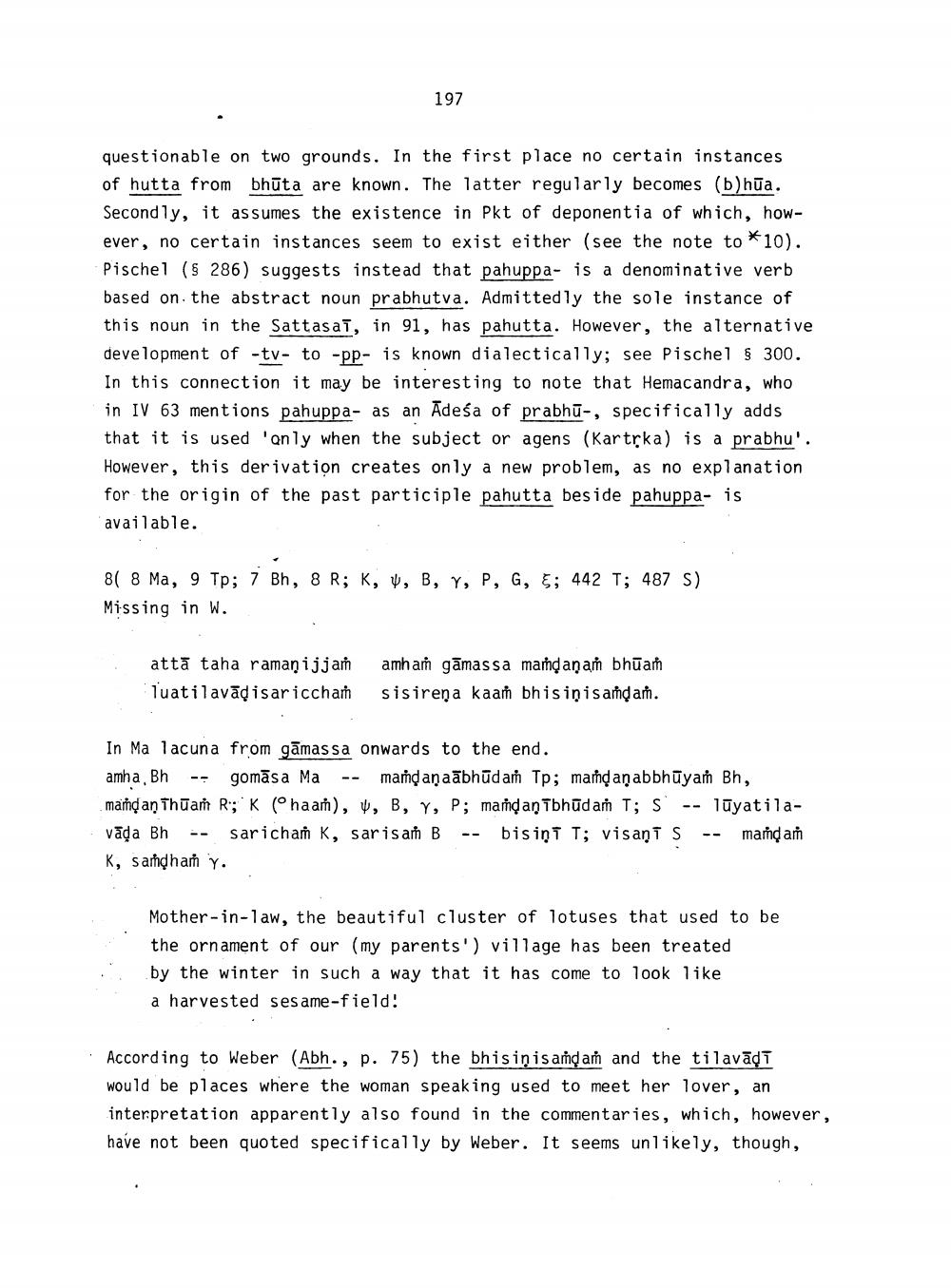________________
197
questionable on two grounds. In the first place no certain instances of hutta from bhūta are known. The latter regularly becomes (b) hūa. Secondly, it assumes the existence in Pkt of deponentia of which, however, no certain instances seem to exist either (see the note to *10). Pischel (5 286) suggests instead that pahuppa- is a denominative verb based on the abstract noun prabhutva. Admittedly the sole instance of this noun in the Sattasaī, in 91, has pahutta. However, the alternative development of -tv- to -pp- is known dialectically; see Pischel § 300. In this connection it may be interesting to note that Hemacandra, who in IV 63 mentions pahuppa- as an Adeśa of prabhū-, specifically adds that it is used only when the subject or agens (Kartrka) is a prabhu'. However, this derivation creates only a new problem, as no explanation for the origin of the past participle pahutta beside pahuppa- is available.
8( 8 Ma, 9 Tp; 7 Bh, 8 R; K, y, B, Y, P, G, E; 442 T; 487 S) Missing in W.
attā taha ramanijjaħ Tuatilavādisariccha
amh am gāmassa madanam bhūam sisirena kaam bhisinisaṁdań.
In Ma lacuna from gāmassa onwards to the end. amha, Bh -- gomāsa Ma -- mamdaņaābhūdaṁ Tp; mama anabbhūyan Bh, maño an Thūań R; K (haa), V, B, Y, P; mamdan Tbhūdam T; S' -- lūyatilavāda Bh -- sarichan K, sarisan B -- bisiņT T; visant S -- mand an K, sandhan Y.
Mother-in-law, the beautiful cluster of lotuses that used to be the ornament of our (my parents') village has been treated by the winter in such a way that it has come to look like a harvested sesame-field!
According to Weber (Abh., p. 75) the bhisiņisaṁd aṁ and the tilavādī would be places where the woman speaking used to meet her lover, an interpretation apparently also found in the commentaries, which, however, have not been quoted specifically by Weber. It seems unlikely, though,




